From PTSD to Parkinson’s, President Aoun and bestselling author discuss how music therapy is transforming modern medicine
Northeastern President Joseph E. Aoun and Daniel Levitin, the author of “This is your Brain on Music,” covered groundbreaking uses of music to treat illness during a conversation on the Boston campus.
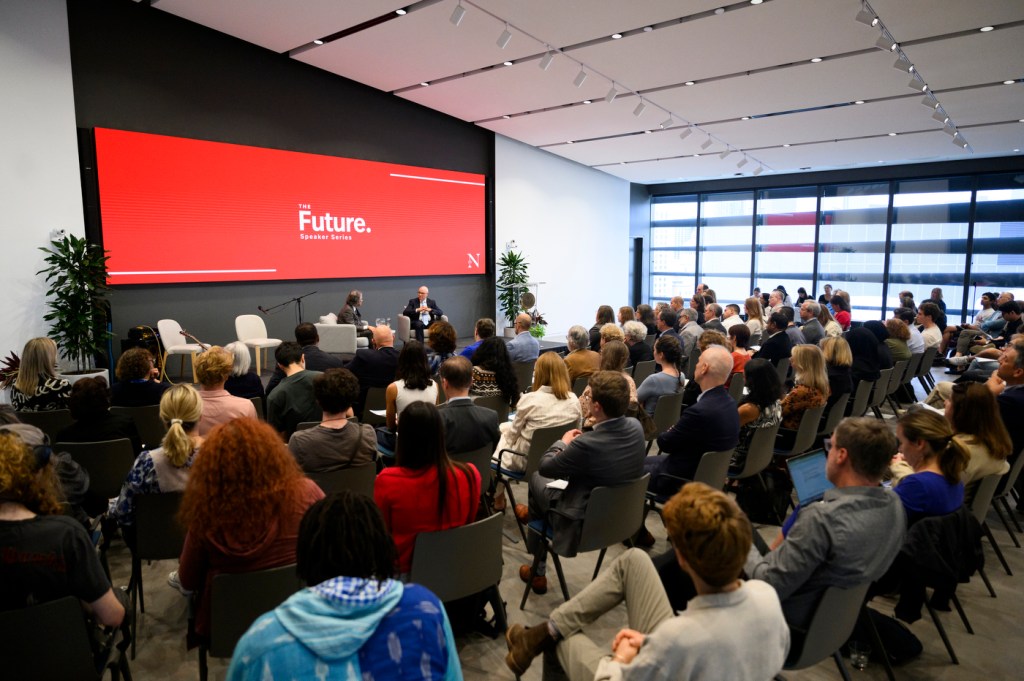
In an intuitive sense, the power of music to heal and strengthen is no surprise to most of us. We take comfort in certain songs when we’re sad, listen to others to get our creative juices flowing or get amped up for a workout.
But in the past decade or so, medical research giving peer-reviewed, quantitative backing to that notion has flourished.
On Wednesday, those scientific discoveries around the healing power of music — from using rhythm to treat symptoms of Parkinson’s disease to collaborative songwriting as a treatment for veterans with PTSD — were the subject of an in-depth conversation between Northeastern University President Joseph E. Aoun and Daniel J. Levitin, a bestselling author and one of the world’s best-known thinkers on music and neuroscience.
The event, on the eighth floor of the EXP research complex on the Boston campus, served as the kickoff of the “Future Of. Speaker Series,” a slate of conversations between Aoun and top thinkers across a range of disciplines.
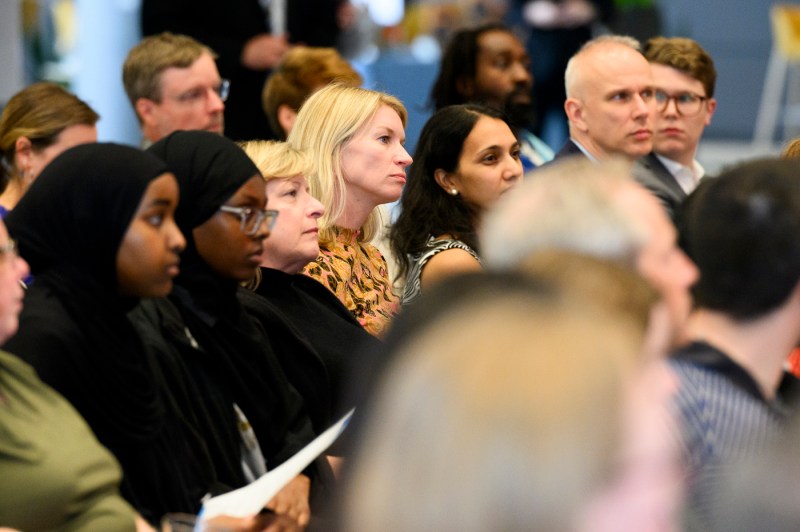
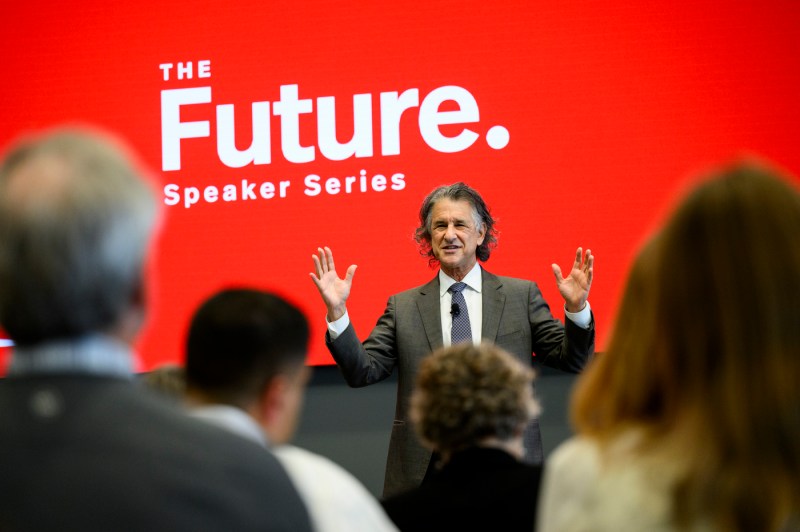
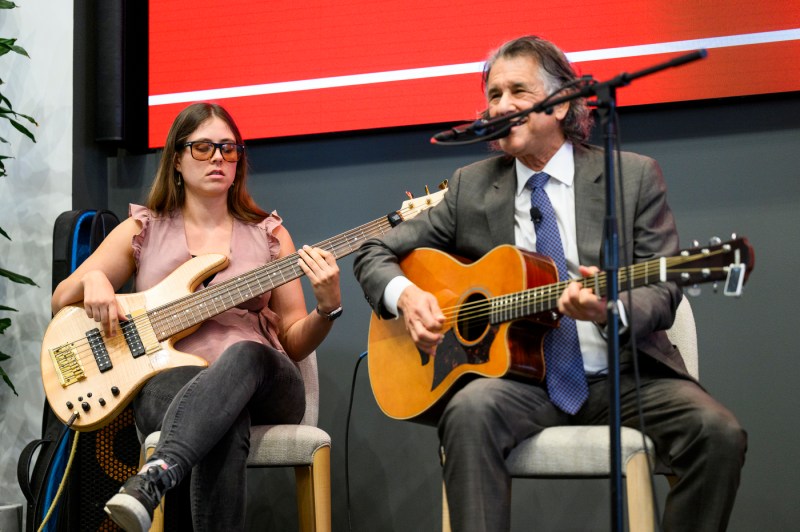
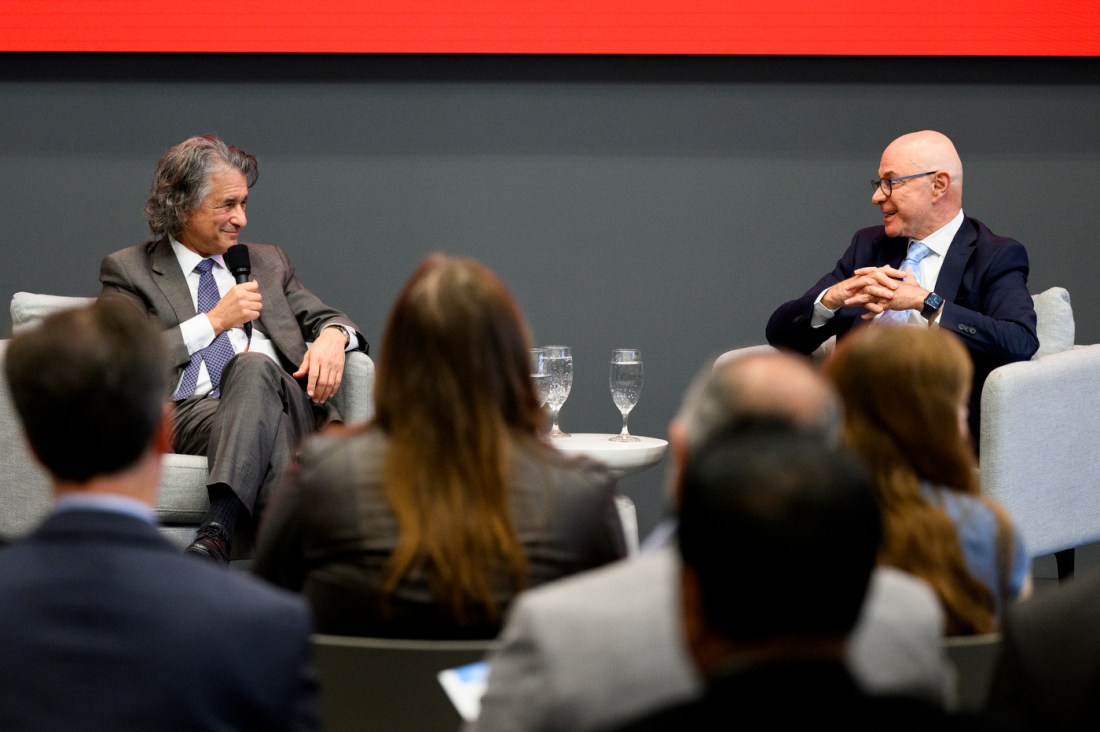
Levitin’s latest book, “I Heard There Was a Secret Chord: Music as Medicine,” explores the potential of music as a powerful medical tool — one more and more practitioners are taking seriously.
“There’s this concept of music as therapy,” Aoun said to Levitin at the start of the talk. “How is that being received by the medical community?”
“The medical community needs to see not just that it works, but how it works,” Levitin responded. “Things are moving quickly.”
As evidence, Levitin noted that insurance providers are increasingly covering music-based care as forms of treatment.
“Blue Cross Blue Shield will now fund music therapy in New Jersey,” he said. “Massachusetts offers vouchers for preventative arts therapy because they know it works.”
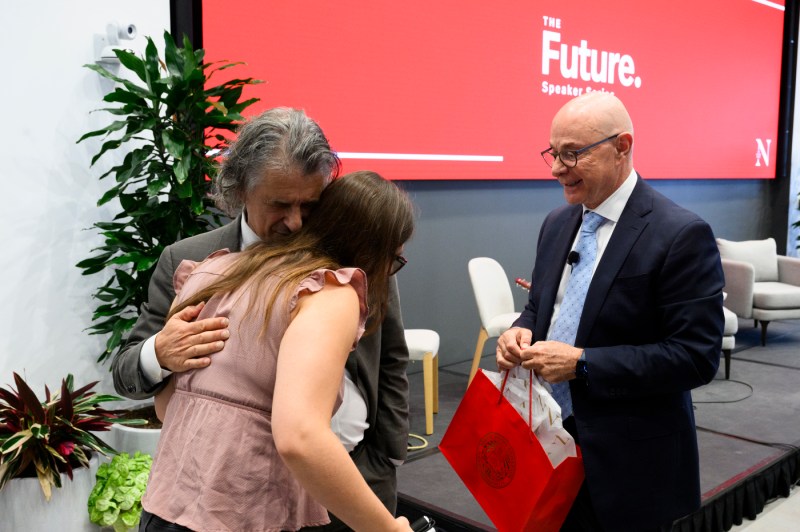
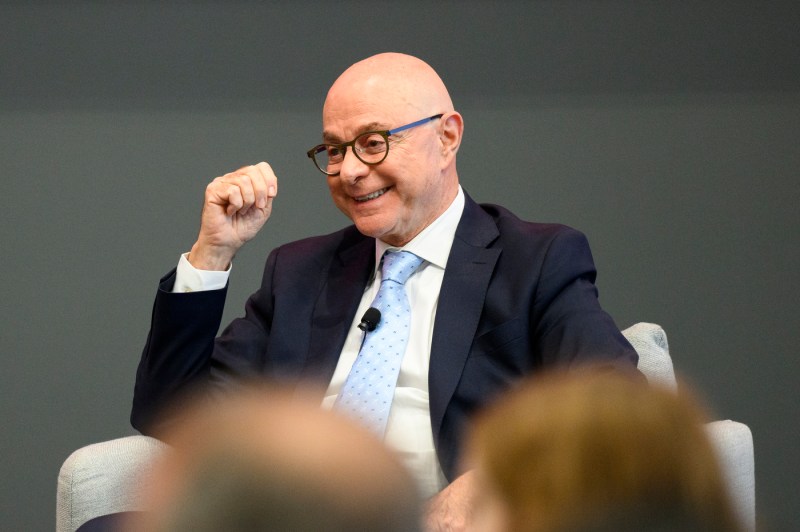
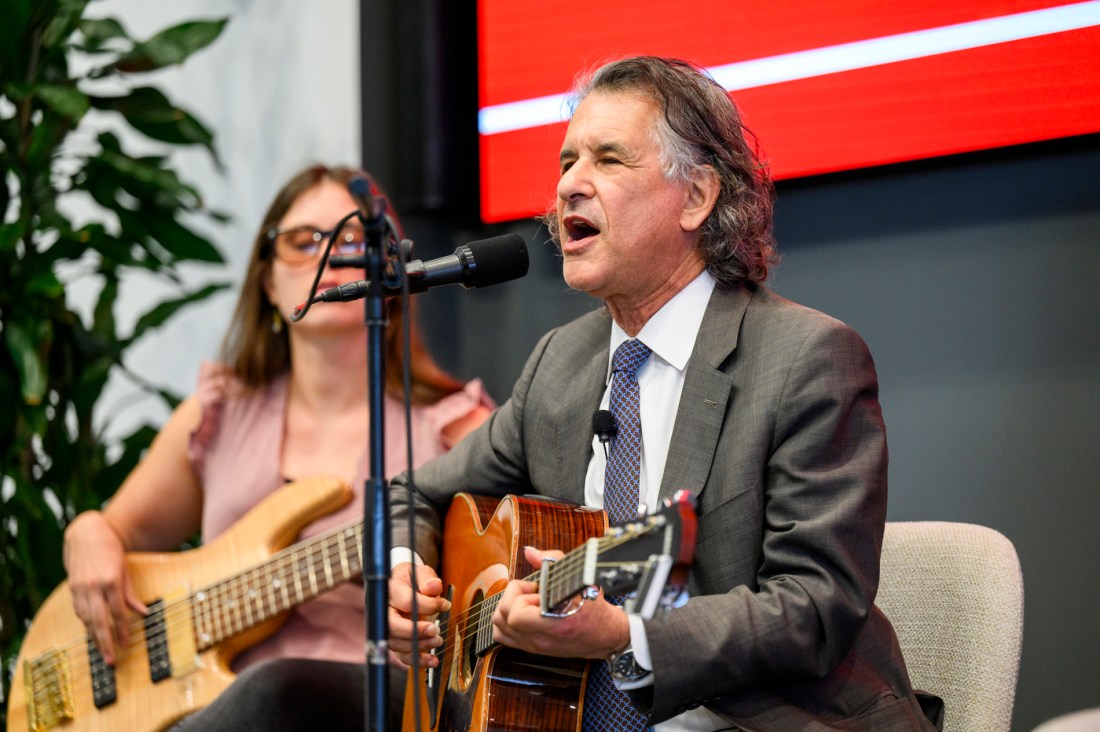
Beforehand, Levitin gave the audience a partial rundown of research breakthroughs at the intersection of music and medicine. Collaborative songwriting sessions, for instance, are popular treatments for soldiers with PTSD, shown in brain scans to reduce levels of the stress hormone cortisol.
“It allows them to recontextualize traumatic events, to take their pain and put it somewhere else,” he said.
Some of the most compelling findings involve music as treatment for degenerative brain conditions. Take Parkinson’s disease, which degrades the neural structures that allow patients to maintain a steady gait and control their movements. A simple yet powerful intervention can offer relief.
Featured Posts
“If you play [Parkinson’s patients] music [that is the same] tempo as their gait, entire populations of neurons not affected by Parkinson’s fire at the rate of the song, and after six seconds of music they can walk,” Levitin said. “Training like this can last for six months. The musical brian functions independently, allowing us to do things we might not otherwise be able to do.”
Music can offer tangible comfort to people in advanced stages of memory loss due to conditions including Alzheimer’s, Levitin added.
“Patients who can’t recognize their loved ones, or themselves in the mirror, get very violent and angry, or they become folded in on themselves,” he said. “You play the music from their youth, and it gets in their brain in all kinds of different ways. When that happens, a patient can suddenly rediscover themselves. They feel calm; it releases calming chemicals, reduces cortisol. It’s really miraculous.”
During their discussion, Aoun took the conversation global, drawing upon his background as a linguist to ask how music, a universal language, might be used for therapeutic purposes across different cultures.
“Most pre-industrial cultures across the planet are using music for healing,” Levitin responded. “But no one culture’s music appears to be better, just as we think no one language is better.”
Levitin, a professor emeritus of neuroscience at McGill University, has built a career exploring music and cognition; his work is celebrated both within academia and among some of the world’s best-known musicians. No less than Paul McCartney blurbed his latest book, writing, “for many years I have wondered why a bunch of frequencies organized into a piece of music has the ability to make the listener cry and become emotional. … Dr. Levitin … has some fascinating insights into this great phenomenon.”
To close the conversation in EXP, Aoun called on Levitin to honor Northeastern’s reputation for experiential learning by playing a little music. He motioned to a pair of guitars onstage and brought up Ciara Moser, a professional bassist who has been blind since birth and new member of the faculty at Berklee College of Music, to perform with the neuroscientist.
“Let’s do a minor blues in D,” Levitin said. He then sang and performed a pair of short songs, including one about a waitress in a diner.
“I’ve been writing songs since I was 18. They only started getting good in the last 10 years,” he laughed.










